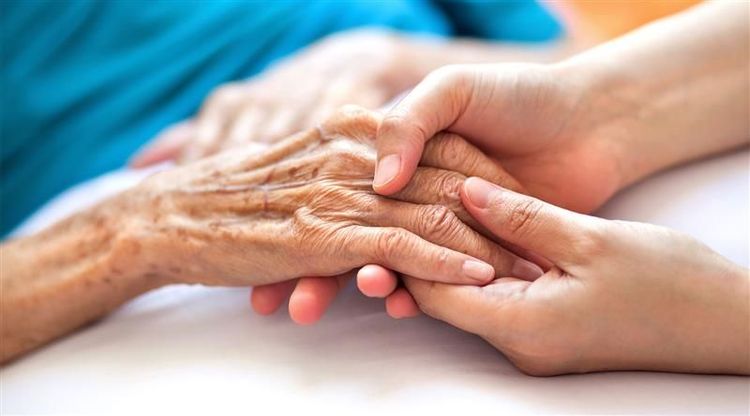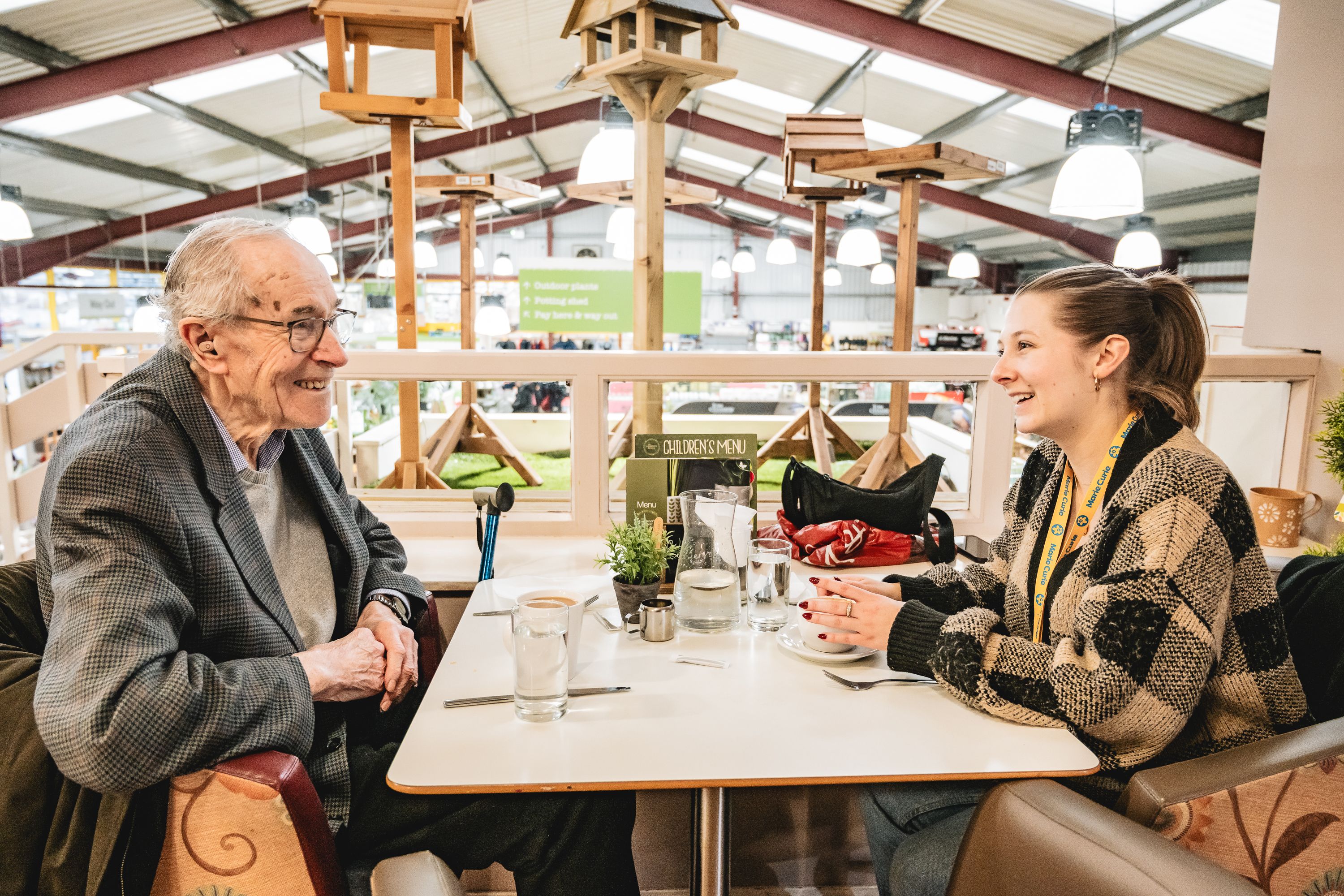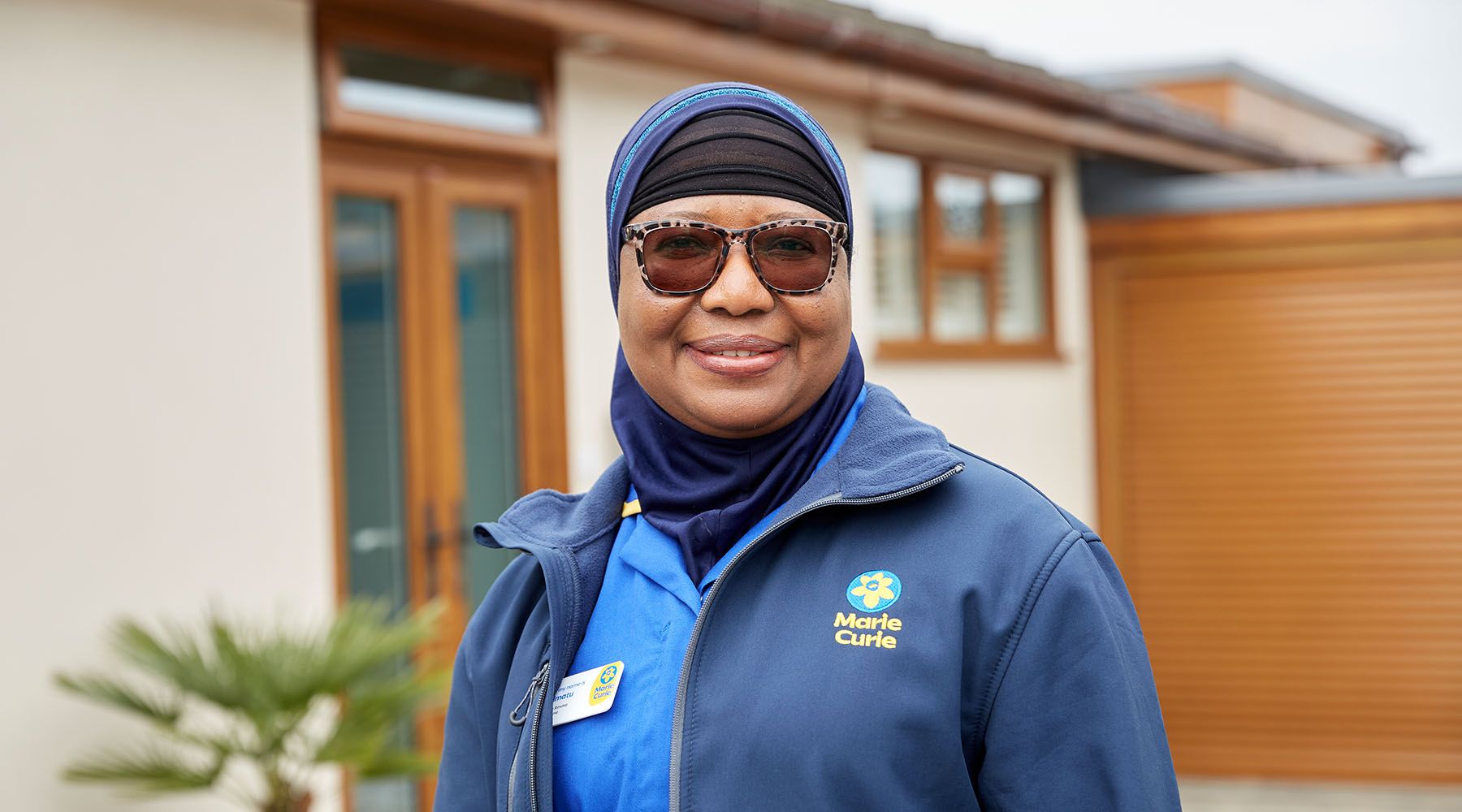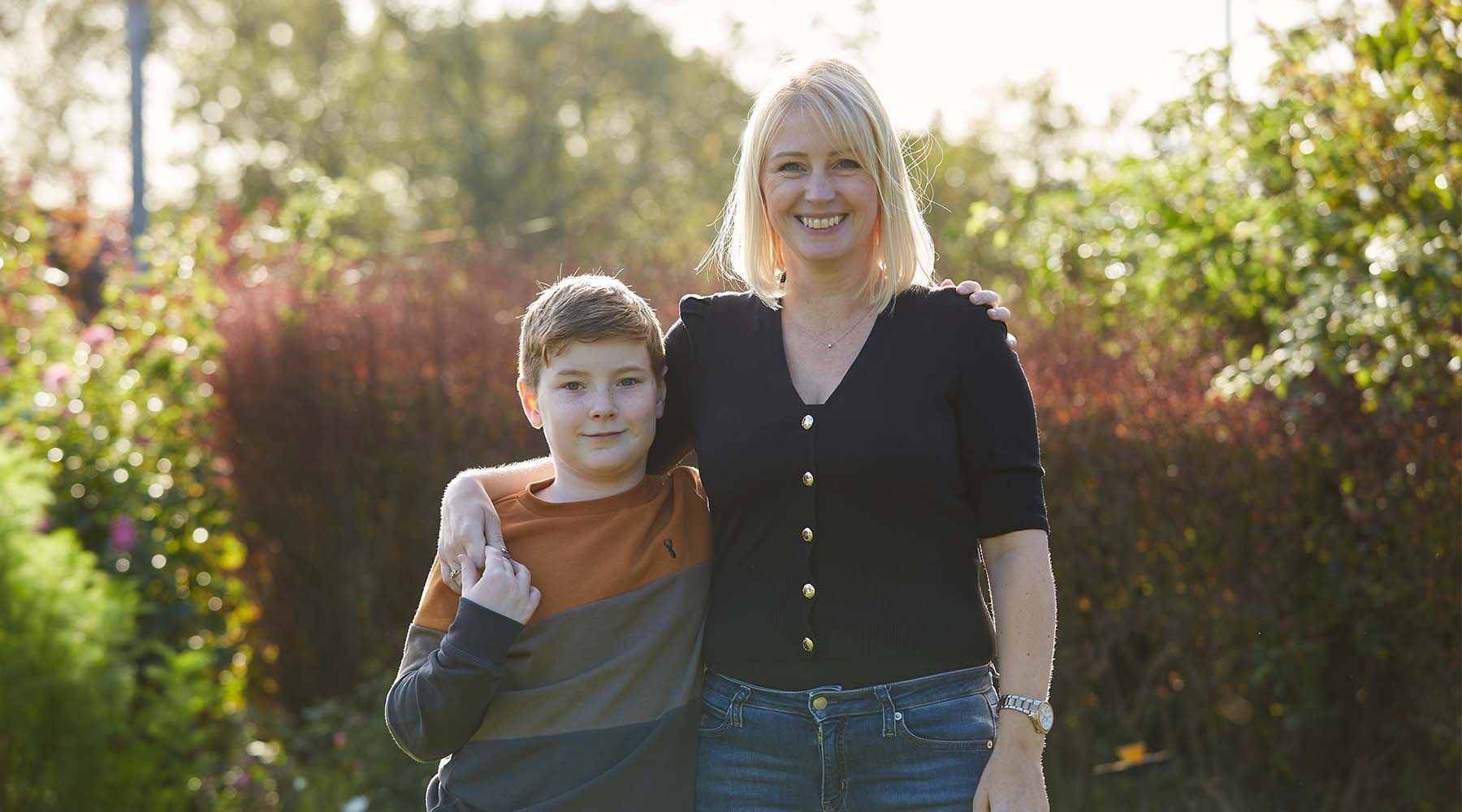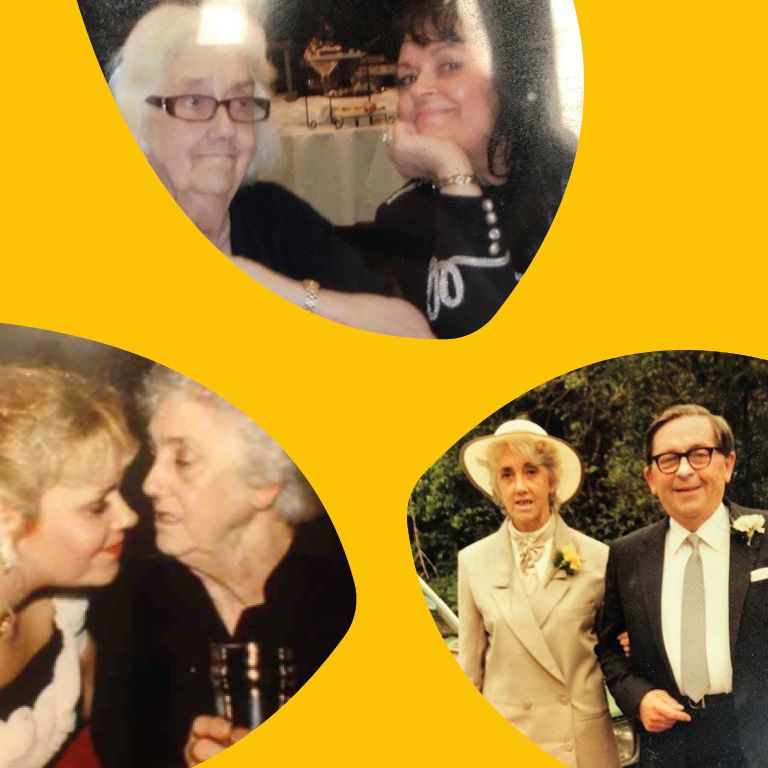Maria’s been volunteering as a Marie Curie Companion for six years. She explains her role and how it’s changed the way she sees the world.
I support people in Musgrove Park Hospital in Somerset who are at the end of life, or who have terminal conditions such as motor neurone disease, Parkinson’s, heart failure - that sort of thing. It’s about supporting them and their families.
I’m retired now, but my background is nursing and midwifery, so the hospital is familiar to me. I generally do two shifts a week.
I offer companionship to the person at the end of life
When somebody’s in hospital, they’re in unfamiliar surroundings and they’re probably anxious. So somebody visiting them, especially if they haven’t got anybody else there, is very welcome.
It can be difficult supporting someone when I don’t know anything about them; I try and build up some sort of common ground, asking about previous work, hobbies, music.
The ones that can communicate often say, “It’s lovely to talk to you, thank you so much for coming, I look forward to seeing you again”.
For those that can’t speak, I just hope that they take comfort from my visits; someone sitting with them for a while, saying reassuring words and holding their hand.
Family members find our role very supportive
We provide a shoulder to cry on if they want, information about where to stay, concessionary car parking, where to eat and drink in the hospital and engage in conversation that’s a distraction.
With relatives, I’m guided by them; when I see somebody is visibly upset, I’m either quiet or I offer some words of reassurance, I maybe put an arm around their shoulders. Occasionally I say, “Do you want a hug?” and they come straight into my arms.
Sometimes when I’m with family members or friends and the patient is non-communicative, we talk about music or nature or anything except what’s happening in that room at that time.
Some relatives travel from all over the world to be at the bedside of the dying person for however long it takes. That’s so heart-warming because others who live close by don’t necessarily come to the bedside. But I know that it can be difficult for relatives due to constraints with work, young children, health problems. I never judge.
Quite often relatives will say, “We can’t be here all the time, so it’s really lovely that you can come and we know they’re having a visit when we’re not able to be here”.
I support people with advance care planning
There can be fear around talking about death. But a lot of advance care planning is about who someone is, what’s important to them, who’s important to them, what their likes and dislikes are. We also talk about funeral arrangements, Power of Attorney, have they made a Will? We discuss social media and who’s got access to their financial arrangements, because talking about all these things beforehand makes it so much easier for the family afterwards.
It’s also for the person. I always say to them, “In case you go to hospital or a care home or nursing home – what do those people need to know about you?” If it’s all written down, it can help, particularly if you haven’t got the family there.
More than once, as a person is telling me their final wishes, their son or daughter will pipe up and say, “I didn’t know that Mum! I thought you wanted X.” So even though they’re a close family, things can still be revealed that will help everybody in the end.
Why volunteer with Marie Curie?
Whether you’ve recently finished work, the children have grown up and left home, or it’s feels like time to do something else, I’d advise anybody to get out there and do volunteering, especially with Marie Curie who support and value their volunteers.
Reaching end of life in hospital must be the most difficult stage of living, being away from home and all things familiar. If we can make a little difference in that and help the families a bit, then we should do it.
What being a Marie Curie Companion has taught me
Volunteering with Marie Curie has changed how I see the world. Every day is a school day. I mean that. It’s not just us helping people, I think they help us because we learn from talking to them.
When you’re in this role, you learn by experience. Even though I have a nursing background and I’ve dealt with dying people, this is quite different. You start off quite raw and over time knowledge and confidence increases. People might mention a specific thing that you’ve done or said, and you think, “I’ll remember that”.
I’ve been a Companion for six years, and I only now feel comfortable saying I enjoy my role. I used to think it sounded a bit strange to say that about being with people who are dying and supporting their families.
A lot of my friends say, “Oh that must be really difficult”. But for me it isn’t. I find it very rewarding, satisfying, and I do enjoy it. It’s a privilege to be at somebody’s side, knowing that they haven’t been on their own.
All rights reserved. Contact stories@mariecurie.org.uk for more information.
